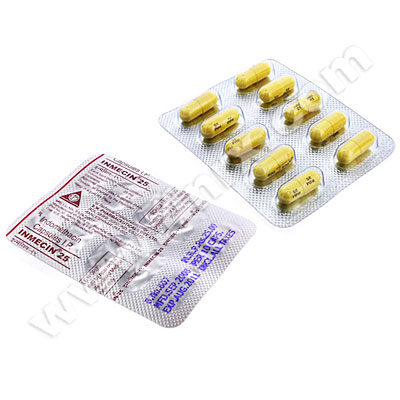 |
Home  Pain Pain  Inmecin (Indomethacin) Inmecin (Indomethacin) |
|
|||||||||
|
Inmecin (Indomethacin)
What is Inmecin (Indomethacin) used for? Inmecin (Indomethacin) is given as a treatment for the pain, inflammation and stiffness occurring as a result of osteoarthritis, rheumatoid arthritis and ankylosing spondylitis. Other conditions treated by this drug include pain caused by bursitis and tendinitis. This medication is a type of NSAID (non steroidal anti-inflammatory drug) which works by stopping the production of the substance which causes fever, pain and swelling. How should I use Inmecin (Indomethacin)? Inmecin (Indomethacin) capsules should be swallowed whole with a glass of water. The exact dosage required depends on a variety of factors. Some patients may be told to take it 2 to 4 times per day. Follow all instructions provided to you by your physician and never exceed the prescribed dosage. What are the side effects of Inmecin (Indomethacin)? Inmecin (Indomethacin) may cause side effects, such as:
If you notice blurred vision, painful urination, extreme fatigue or any other more serious side effects, you should immediately consult your physician. Please Note In some patients, this drug may increase the risk of a heart attack. There is an increased risk of potentially fatal bleeding from the stomach or intestines when taking this drug. You should discuss the risk of this with your physician before taking this medication. Strictly follow all instructions provided to you by your physician or pharmacist while using Inmecin (Indomethacin). Optimum and safe dosage can differ based on the patient and the condition being treated. As this medication may be unsafe for certain patients, it is essential you always inform your physician if you are pregnant or breastfeeding, as well as if you have any allergies, other illnesses, or ongoing health conditions, and if you are taking any other form of medication, supplements, or herbal products. Immediately seek emergency medical care if you have any allergic or hypersensitive reaction. Common signs of a reaction include hives, swelling, skin rashes, chest pains, as well as trouble breathing or swallowing. 
|
|||||||||||||||||